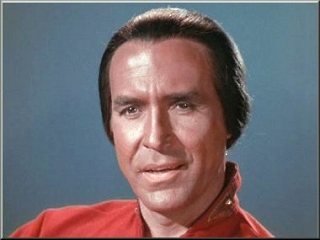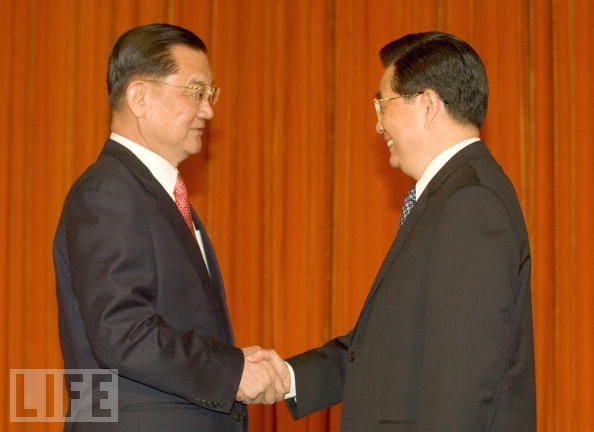Having a spot of computer problems, but've been watching with interest the fallout from last week's sinking of a Taiwanese fishing boat by the Japanese coast guard near the Senkaku Islands. Japan's Kyodo News reports on the racheting-up of tensions:
. . . Meanwhile, the [Taiwanese-owned Kidd-class] warship carrying KMT lawmakers and press is reportedly scheduled to depart for the islets Wednesday.
''This would be for survey maneuvers, so we can definitely send a vessel,'' Defense Minister Chen Chao-min told reporters.
Further endangering bilateral ties, a fleet of Taiwanese ships steamed full tilt Monday toward the islets to protest the incident.
Accompanied by nine patrol vessels, a Taiwanese fishing boat entered what Tokyo said were its territorial waters in a bid to land on one of the islets.
Local TV news footage showed a U.S.-made Taiwanese Cobra attack helicopter escorting the fleet.
Japan Coast Guard vessels reportedly blocked the protest boat from the island landing, eventually driving it back by spraying it with water cannons.
Taiwanese Premier Liu Chao-shiuan told lawmakers last week that he would not rule out war with Japan over the islets, while the island's Foreign Ministry dissolved the special committee for managing ties with Japan. [emphasis added throughout]
The Kyodo News also tells of the plight of Taiwan's ambassador to Japan:
Taiwan's top representative to Japan urged the island's Foreign Ministry on Monday to let him resign over a worsening diplomatic row between Taipei and Tokyo over a ship collision in disputed waters.
''I had pleaded to the Foreign Ministry to replace me before July,'' said Koh Se-kai, Taiwan's de facto ambassador to Japan in the absence of official ties. ''They won't let me step down.''
[…]
Hardliners on Japan in Taipei, including ruling Nationalist Party lawmakers, have slammed Koh for ''being too soft'' in his handling of the incident.
Koh has broken ranks with the Foreign Ministry to defend Japan's response to the incident, saying Tokyo's expression of regret should satisfy Foreign Minister Francisco Ou's demand for a formal apology.
Ou has rejected expressions of regret by Tokyo . . .
Pity poor Koh, the diplomat who still labors under the false notion that it's his job to be, well, diplomatic.
WRONG. It's his job to be the goat. Oh, he can leave – but only AFTER the KMT conducts their two minute hate session of him.
Er, but I did notice this one howler in the Kyodo News story, however:
Taiwan's response to the incident also appears to have split the leadership among those seeking to ratchet down tensions with Tokyo, mostly DPP lawmakers and other DPP-linked political players, and KMT and ministerial-level officials, who have adopted a hard line toward Japan. [emphasis added]
Taiwan's independence-minded DPP was decimated in the parliamentary and presidential elections earlier this year, reducing them to an impotent opposition party. To call them part of Taiwan's leadership would be a bit of a stretch. Aside from that though, it's a good piece.
Speaking of good pieces, the Taiwan News published a bang-up editorial on the crisis yesterday, which the View from Taiwan comments on. Not much for me to add to either of these, other than to ask what the Ma administration's reaction would have been if a Taiwanese vessel had been sunk in disputed waters by the CHINESE coast guard. Would American warships loaded with truculent KMT legislators be dispatched to the scene? Or flotillas of civilian protest ships accompanied by American attack helicopters? And finally, would the Taiwanese government under President Ma Ying-jeou be placing the option of WAR upon the table?
POSTSCRIPT: A short background to the Senkaku Island dispute from Wikipedia, while a more in-depth background can be found at GlobalSecurity.Org. John J. Tkacik from the Heritage Foundation wrote a piece about the general subject back in 2005 which is still worth a look. (Especially since Beijing offered some ominous moral support to Taiwan last week by denouncing Japan for its treatment of Taiwan, China.)
Recommended reading would also include this document, as well. It concludes on this note:
International law presents many unanswered questions about the Senkaku/Diaoyu Islands dispute. Can claims of sovereignty based in fourteenth century Asia be judged by norms developed in Europe centuries later? What is the nature of discovery and occupation for uninhabited islands? What is the critical date when the dispute crystallized? Were the Senkaku/Diaoyu Islands part of Taiwan or of Okinawa before 1895? How does one interpret ambiguous treaties? [Because the disposition of the Senkakus was not explicitly mentioned in post-war treaties governing Japan — The Foreigner] Finally, how will the disputed islands affect maritime jurisdiction. Even if ownership of the islets is settled, can that sovereign claim an EEZ or continental shelf from islands that have never been inhabited and seem to have no economic life. The 1982 UN Convention on the Law of the Sea would appear to say no, but several countries claim extended jurisdiction from such features. [emphasis added throughout]
Gotta love that second sentence. Can claims of sovereignty based in fourteenth century Asia be judged by norms developed in Europe centuries later? It's as though the author anticipated twelve years in advance Joe Hung's argument for why the Senkakus belong to Taiwan:
Taiwan's claim of sovereignty [over the Senkakus] is on a much more solid ground [than the Japanese claim]. The Ryukyus [which include the island of Okinawa — The Foreigner] was a kingdom, which became a vassal state of China's in 1372. The Emperor Hong-wu of the Ming dynasty proclaimed China's suzerainty over the tiny but prosperous kingdom by sending an imperial commissioner to perform the first investiture of the king.
Funny, but al-Qaeda says pretty much the same thing when it claims Spain in the name of the Master Faith. Al-Andalus IS, WAS, and always WILL be part of the Islamic Caliphate . . .
(Say now, you don't suppose Koreans or Vietnamese get a mite twitchy hearing all this talk justifying Sinofascist land grabs on the basis of a country's former vassal status to China?)
UPDATE: Tuesday's Taipei Times has more details on the Taiwanese protest flotilla that was sent to the Senkakus on Monday, as well on the Taiwanese ambassador's attempt to resign:
Representative to Japan Koh Se-kai submitted his resignation yesterday after he was accused by Chinese Nationalist Party (KMT) lawmakers of being a “traitor” for “siding with the Japanese.”
[…]
Meanwhile, KMT caucus whip Lin Yi-shih (林益世) lashed out at Koh for not announcing his resignation at the legislature, saying that he treated his resignation as “child’s play.”
Usually ambassadors quit by placing a letter on someone's desk and are allowed to slink quietly out the back door, but not Koh. Koh must be the first Taiwanese representative in history that is expected to resign in front of a jeering mob.
More civility from Taiwan's party of decency:
Lin Yih-shih, Kuomintang whip, demanded Ou not to accept Koh's resignation and make sure that the envoy appear before the legislature for interpellation.
[…]
Another Kuomintang lawmaker, Lu Chia-chen, charged Koh was a "straggler." "Premier Liu Chao-schiuan should take disciplinary action at once and have Koh referred for prosecution," he urged.
Treason, straggling, failing to appear before a council of KMT grand inquisitors… capital crimes all. Memo to the next ambassador to Japan: Tear a page from Nikita Khruschev's playbook and learn how to bang your shoe on the table. Your bosses will eat it up.


